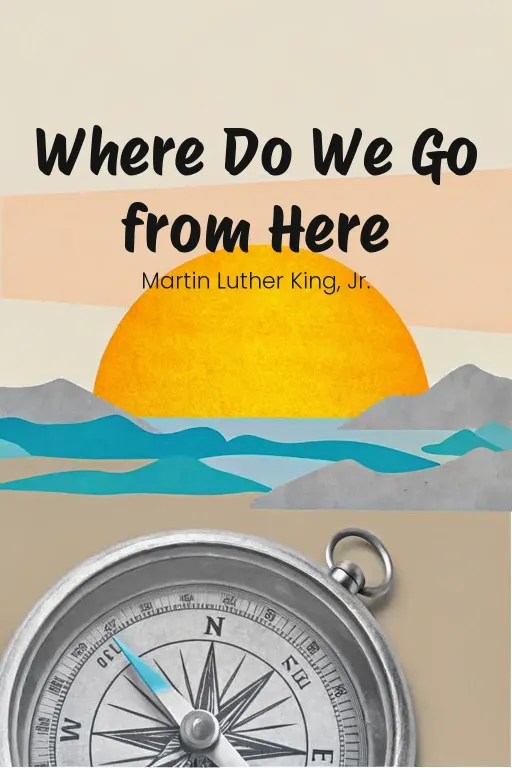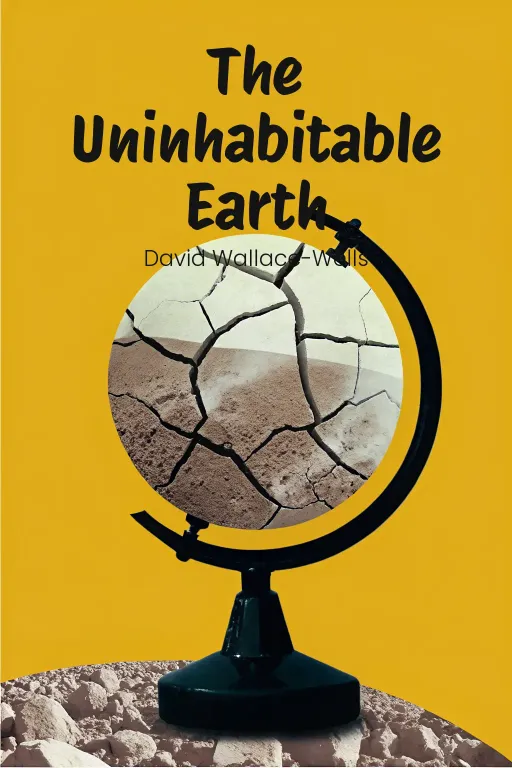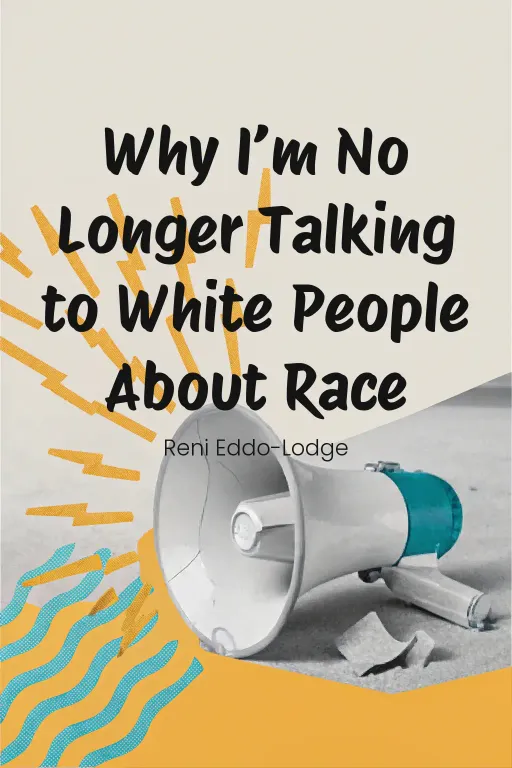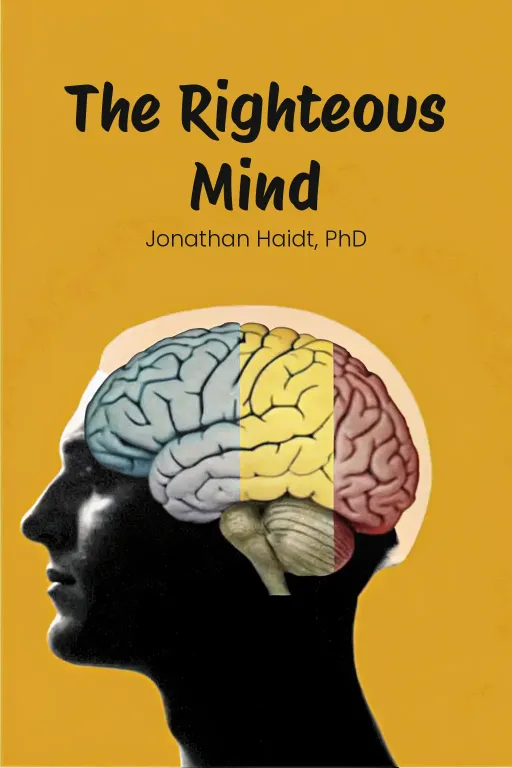
Equity Now: King's Urgent Call
Podcast by Civics Decoded with Thomas and Grace
Chaos or Community?
Introduction
Part 1
Thomas: Hello everyone, and welcome back to another episode where we delve into the ideas that are shaping our world. Today, we’re going to be taking on a really significant question, one that Martin Luther King Jr. posed: "Where do we go from here?" Grace: It's a question that, honestly, still feels incredibly relevant today, doesn't it? King’s book isn't just a historical recap of the Civil Rights Movement. It’s really more like a map—a map with some seriously sharp turns, and more than a few potholes along the way. Thomas: Exactly. In Where Do We Go from Here: Chaos or Community?, King reflects on the successes and the failures of the Civil Rights Movement, but he really goes beyond that. He tackles systemic racism, poverty, and even militarism as these interconnected forces that are threatening equality… not just in the U.S., but globally. And throughout it all, he keeps this vision of a “Beloved Community” alive—a community built on justice, empathy, and a shared sense of humanity. Grace: Right, but he doesn't hold back when he's calling out white America for, you know, its hesitation to fully embrace racial justice or wealth redistribution. And then, of course, he addresses the growing voices around Black Power. He critiques it, sure, but he also grapples with it, recognizing it as an expression of both frustration, and empowerment. Thomas: That grappling is so key to understanding this book. King isn’t trying to downplay the obstacles; he remains firm in his belief in nonviolence, equality, and this idea of collective action. His call for a values revolution, which blends moral responsibility with structural reform, feels incredibly pressing in today’s world. Grace: So, today, we’re going to break this down into three parts. First, we’ll look at the enduring wounds of systemic racism, because, let's be real, those wounds haven’t really healed, have they? If anything, some are still pretty raw. Thomas: Then, we’ll move on to examining the rise—and the criticisms—of Black Power, exploring how it clashed with King’s philosophy, and what that tells us about power, anger, and unity. Grace: And finally, we'll dig into King's lasting vision of the "Beloved Community." It's an ambitious, almost utopian concept that really asks: how do we achieve global justice when we can't even sort things out in our own backyards? Thomas: Three interconnected threads. They take us from facing some hard truths all the way to imagining a more hopeful, unified future. Shall we get started?
Systemic Racism and Economic Inequality
Part 2
Thomas: Building on the deep wounds caused by systemic racism, we really need to start with King’s incredibly clear understanding of just how deeply rooted these inequalities are, especially when you look at economic disparities. He wasn’t just pointing fingers at bad policies or a lack of enforcement; he was “really” digging into how our economic systems were actually designed to keep segregation and poverty going. Grace: Exactly, let's jump right into those structural barriers, things like redlining, those predatory housing practices, and urban segregation. I mean, these weren’t just accidents, right? They were very deliberate, profit-driven strategies. And the example King gives us of Watts—it “really” hits home. Those riots in 1965 weren’t just random outbursts; they were the result of decades of systemic neglect. Thomas: Watts is such a crucial example. King makes it so clear that those riots weren’t just senseless violence. Think about it: substandard housing, poverty-level wages, underfunded schools… These conditions weren’t unique to Los Angeles; they were happening in cities all across the U.S., creating a powder keg. When the legal victories of the Civil Rights Movement didn’t actually lead to real improvements in people's daily lives, that anger just boiled over. That's the disconnect King keeps emphasizing, you know, the gap between legal progress and the reality people were living. Grace: And let’s not forget that “urban renewal” didn’t “really” renew anything for Black communities, except perhaps their proximity to even more overcrowded and overpriced housing. King “really” goes for the jugular when he criticizes these policies as just modern forms of displacement and segregation. Calling it "hypocrisy" might actually be putting it mildly. Thomas: Right, because these policies were supposedly aimed at tackling poverty, but in reality, they fueled even deeper economic despair. And then there's redlining. When King talks about entire neighborhoods being shut out from mortgages and fair housing, it's not just about individual credit scores; it’s about stripping entire communities of the ability to build wealth over generations. Redlining might sound like some technical term, but it had—and still has— “really” profound, real-world consequences. Grace: Think about it. Without the ability to own homes in decent neighborhoods, African Americans were basically cut off from the economic foundation needed to build stability and prosperity. Meanwhile, white families were building equity, passing down wealth, and benefiting from government policies like the GI Bill. King lays it all out there—if you want to “really” understand the wealth gaps we see today, you have to trace it back to these roots. Thomas: And it wasn't just housing either. Employment discrimination held Black workers back in equally systematic ways. King exposes how African Americans were locked out of those high-paying industries or simply relegated to low-wage jobs with absolutely no chance for advancement. Like he said, you can give someone the right to vote, but if they don't have the money to buy food, that right “really” loses a lot of its meaning, doesn't it? Grace: Exactly, and that brings me to something that's been on my mind. King’s focus wasn’t just on getting better jobs, it was about having real, structural access to those jobs. The idea of those second-chance universities? Genius. It's like he was saying, "Stop pretending that talent only looks like Ivy League degrees or high test scores." Thomas: Such an innovative solution, and it’s rooted in his broader vision of dignity. He understood that people need more than just work; they need meaningful work that truly respects their humanity. But to get there, you have to tear down those systemic barriers that trap certain groups in cycles of poverty. Training programs, vocational schools, those second-chance universities—they weren’t, for King, just temporary fixes. They were actual pathways to middle-class stability and economic justice. Grace: Speaking of pathways, let’s talk about Operation Breadbasket for a moment. Now that, to me, is activism with real teeth. This was King’s brilliance in action—recognizing the power of Black consumers to force change. Think about it, businesses happily took money from Black communities, but they weren’t exactly lining up to offer Black folks equitable jobs. Thomas: Operation Breadbasket harnessed that economic power and made it strategic. Through boycotts and negotiations, King and the SCLC actually forced businesses to hire Black workers. It wasn’t just about idealism; it was about being practical. And those efforts paid off, especially in cities like Atlanta, where those campaigns directly increased Black earning power by millions. Just imagine what could happen if that kind of action were scaled up nationwide! Grace: Right, but here’s the tough part that King doesn’t sugarcoat: white ambivalence. Even with these campaigns, he points to this constant white backlash, fueled by the fear of losing privilege. It’s almost the same story we see today when issues like reparations or affirmative action come up. You try to offer equity, and suddenly people feel threatened. Thomas: He saw that backlash as a huge obstacle, one that’s tied to America's lukewarm willingness to “really” address systemic racism. King argued that a lot of white allies were okay with symbolic changes, but they balked at anything that demanded real sacrifice—like real wealth redistribution, fair taxes, or transformative urban development. Grace: It’s the difference between cheering for the Voting Rights Act and then losing patience when King starts talking about the “Freedom Budget,” right? Redistributing resources is always a sticking point; it’s like people want justice, but only if it doesn’t cost them anything. Thomas: And the Freedom Budget—what a bold vision that was. It was A. Philip Randolph's proposal, but King fully embraced it. It aimed to end poverty not through piecemeal charity but through comprehensive reform: eradicating joblessness, guaranteeing fair wages, and improving housing standards. As King said, this wasn’t just about money; it was about restoring dignity to people. Grace: Ambitious, to say the least. But let me play devil's advocate here – was that kind of federal intervention actually realistic, politically speaking? Given how many roadblocks even the Great Society programs faced, can we “really” expect something as sweeping as the Freedom Budget to ever happen, especially now? Thomas: That's a valid question, but King wasn't just aiming for what was politically feasible. He was outlining a moral and practical necessity. He knew how daunting it was, but he also believed that America’s immense wealth made it entirely possible. What was missing—then and now—was simply the will to do it. Grace: And that’s the core of it. King was calling out a nation that claimed to value equality while hoarding its own riches. His argument boils down to this: you can’t claim to be a great society while letting millions live in poverty. It’s a contradiction that America still hasn’t resolved. Thomas: And that leaves us with his warning: superficial reforms just won't cut it. Until we tackle institutional inequities on a structural level—whether it’s in housing, employment, or education—that cycle of racism and poverty is just going to continue. That’s the foundation King laid out for real transformation.
Black Power and Ideological Divergence
Part 3
Thomas: Right, building on that critique, King then dives into the ideological responses within the Black community. And that's where it gets interesting, addressing the rise of Black Power and the divisions it caused in the Civil Rights Movement. Grace: Absolutely. It's King's intellectual depth on full display there. He didn’t just dismiss Black Power; he “really” grappled with it. You know, he saw where that frustration was coming from and even sympathized with the call for empowerment. But he also pointed out how it could potentially divide and weaken the overall movement. Thomas: Exactly. It’s that duality that’s so fascinating—his ability to see both sides. He saw the frustration with the slow pace of integration, the disconnect between legal wins and the everyday realities for African Americans. You can see why people felt the existing approach wasn't cutting it, right? Grace: Definitely. Like with the Meredith Mississippi Freedom Graceh in '66, that “really” brought those frustrations to the surface. James Meredith wanted to inspire voter registration by marching through Mississippi, and then he was shot! So the march became something totally different when leaders like King and SNCC reps joined in. Thomas: Right, but "joined in" might be a bit of a stretch. What was meant to be a unified stand against racism became a platform for some pretty intense ideological clashes. Then you had those cries of "Black Power" from the younger protesters, which, let’s be honest, didn't exactly sit well with King. Grace: No, definitely not. King saw it as a shift in priorities with younger activists. "Black Power" symbolized a rejection of integration and nonviolence, you know, favoring self-determination. He understood the sentiment, but he was worried about the bigger picture. He thought isolating the movement could alienate allies and weaken the fight for real change. Thomas: But wasn't Black Power a natural progression, though? I mean, people were fed up, tired of asking for basic dignity. They wanted to claim their right to power on their terms. Can you blame them? That phrase was electrifying! Grace: Yeah, King got that. He knew Black Power was, at its core, about reclaiming dignity. After centuries of being defined by others, it was a way for African Americans to take back their identity. It popularized things like embracing natural hair and celebrating African culture—revolutionary stuff in a society built on white supremacy. Thomas: Let’s just pause on that for a sec, because that connection to self-representation is so powerful. Natural hair wasn’t just a fashion choice; it was a political statement. It was saying, “We refuse to conform to standards that erase us." It’s taking back the narrative—taking pride in what the world had tried to shame. Grace: Totally. And King agreed with that, to a point. He was all for that cultural revival as a path to empowerment, but he drew the line when pride turned into isolation or hostility. His ultimate goal was always reconciliation, not revenge. He warned that bitterness can trap people in cycles of destruction, and he urged the movement to channel frustration into constructive action. Thomas: I get that, but I do think King’s idealism might have run up against a wall there. Not everyone can forgive and build bridges when they’re constantly reminded of injustice. Can you “really” fault someone for wanting to go it alone after centuries of betrayal? Grace: That’s a fair point, and King struggled with it too. He was focused on the danger of division, believing that isolating the struggle from broader coalitions could actually reinforce the inequalities they were fighting. Take the skepticism toward white allies. Understandable, given history, but King argued that rejecting those partnerships outright would limit their impact. Thomas: He didn't hold back about the risks either. He was seriously worried that the rhetoric of Black Power could fuel anger that would lead to violence. He feared that turning away from nonviolence would not only lose them the moral high ground but also invite a backlash that would hurt the movement in the long run. Grace: Exactly. You know, if you look at the history of nonviolent movements, it makes sense. King often talked about Gandhi’s achievements in India, or the civil rights campaigns in Birmingham and Selma—examples showing how nonviolence, combined with strong alliances, could create transformative change. He saw those as critical lessons for channeling anger into productive action, not destruction. Thomas: But coalitions aren't easy, especially when trust is fragile. Even King admits that staying united takes constant effort, especially when you’re dealing with overlapping but different struggles. But he always believed that diversity within the movement wasn't a weakness; it was a strength. Grace: Yeah. For King, it was about finding common ground while respecting differences. Even when he disagreed with those younger activists drawn to Black Power, he didn't write them off. He talked to them, acknowledged their grievances, while still emphasizing the importance of unity. That's leadership at its finest, principled and practical. Thomas: And that pragmatism went as far as strategic alliances, even beyond racial lines. Look at the Birmingham Campaign, where Black and white activists worked together against segregation. That collaboration wasn’t just symbolic; it was strategic, using diverse voices to reach a wider audience and make real gains. Grace: Which highlights another key point for King: the universality of the fight for justice. He always framed the civil rights struggle not just as an American issue but as a global movement for human dignity and equality. This helped him make connections between the U.S. and global liberation movements, like the anti-apartheid fight in South Africa. Thomas: And that’s where his critique of Black Power comes full circle. He worried that isolating the Black struggle from these universal causes could limit what the movement could achieve. King believed that emphasizing shared humanity and goals would not only keep the movement morally strong but also amplify its impact everywhere. Grace: So we’re left with this balancing act: celebrating dignity and pride while avoiding bitterness, fostering unity while respecting individuality, and pursuing justice as both a local and global thing. King didn’t have all the answers, but his thoughts on Black Power give us an incredibly nuanced way to navigate these tensions. Thomas: And those tensions are still very real today. It’s proof that the fight for justice is both timeless and constantly evolving. King’s vision reminds us to keep asking the hard questions.
Global Interconnectedness and the Beloved Community
Part 4
Thomas: Expanding from the Black community's internal issues, King broadened his view to see interconnected global struggles. This is where his "World House" idea and the Beloved Community concept “really” shine. He pushes us to realize how our destinies are linked and that justice, equality, and compassion must be global commitments, you know? Grace: Let's zoom in on that "World House" phrase. It's such a powerful metaphor, isn't it? King imagines all humanity sharing this house, which we didn't choose but inherited, so coexistence isn't optional. It's a fantastic image, but a daunting challenge. He frames it so well—it’s not just about living under one roof, but how to do it without fighting over things like who gets the bigger bedroom or the nicer stuff. Thomas: Exactly. King's vision is rooted in interdependence. He understood that progress or failure anywhere in the world affects everyone. He famously said, "Injustice anywhere is a threat to justice everywhere," which means no problem, whether it's racism, poverty, or war, is truly isolated. Local problems have global effects, and vice versa. Grace: That’s a key point. King didn’t just connect similar struggles; he said movements should inspire each other. Think about the U.S. Civil Rights Movement and how it resonated with anti-apartheid efforts in South Africa. They weren’t just similar stories, but sources of support and encouragement. Thomas: Right, and he went even further, referencing liberation movements across Africa, Asia, and Latin America, highlighting the shared colonial oppression. These weren’t just intellectual ideas, they were part of a global story of fighting for dignity and equality, don't you think? His connections were moral and practical. Grace: Moral, sure. But how practical was it, “really”? You mention apartheid or colonialism, and the parallels are clear. But how do you actually create solidarity with these big cultural, historical, and logistical differences? Was King's optimism a bit unrealistic about how scattered these fights could be? Thomas: That's fair. These struggles were and are very specific. But King emphasized the universal desire for freedom and justice. He thought that, although specifics change, power, inequality, and oppression are the same everywhere. Think about his support for Black South Africans. When he spoke against apartheid, he wasn't just talking; he was making it clear that fighting systemic racism goes beyond borders. Grace: Yeah, he made those connections clear, which I admire. But King also talked about vulnerabilities, right? He knew that technology and globalization, while connecting us, also made inequalities—racial, economic—worse. And, in some cases, those gaps have only widened since then. Thomas: That's why King strongly connected this vision to global poverty. He thought poverty wasn't just a local issue or a side effect of capitalism, but a systemic, global failure and a big barrier to the Beloved Community. He said fixing it would require changing society's values completely. Grace: Let's dig into that. Because poverty, for King, wasn’t limited to one race or country. He pointed out that while it greatly affected African Americans, poverty was everywhere. That changes how we understand economic inequality. It's not just about race; it's about power and structure. Thomas: Exactly. King didn’t want small changes, but a total transformation. He pushed for wealth redistribution through things like the Freedom Budget. It was a big plan by A. Philip Randolph to end poverty by investing heavily in jobs, housing, education, and healthcare. Grace: Yeah, well, "ambitious" might be an understatement. We have to be realistic here. Even now, wealth redistribution is a political nightmare. If King had trouble in the 60s, when inequality wasn't as bad as it is now, how would the Freedom Budget even stand a chance today? Thomas: It would face a lot of resistance, that's true. But King’s point was clear: a society that values war and consumerism over people isn’t just unfair, it’s unsustainable. He criticized leaders for putting money into wars, like Vietnam, instead of fixing poverty at home. It was all connected in his view. Grace: Which leads to another big complaint King had: militarism. If there’s a global problem that makes inequality worse and hurts justice, it’s our addiction to military spending. King criticized the U.S. for spending billions on weapons while people starved. And, let’s face it, that complaint is still relevant today. Thomas: Absolutely. King said militarism takes resources and moral energy that should be used to improve society. And the Vietnam War was a big focus of his criticism. It not only took money away from social programs, but it also worsened racial and economic inequalities, since many of those fighting on the front lines came from poor communities. Grace: And it wasn’t just Vietnam. King saw militarism as a global disease, how it creates power imbalances, fuels oppression, and widens global divides. But was he being realistic in thinking we could shift those resources to peace and community while countries are stuck in this endless competition? Thomas: Maybe idealistic, but not naive. King knew it would be hard to change people's minds, but he saw no other choice. For him, the only way forward was to change our values fundamentally. That's where his vision for the Beloved Community comes in—a society where love, empathy, and justice replace domination and greed. Grace: Now we're getting to the core of King's vision. The Beloved Community isn’t just about getting along, it's about change. It's a society where economic justice goes with moral integrity, where we “really” see each other as neighbors, not rivals. But can we even agree on what that looks like, let alone how to get there? Thomas: That's what makes King's vision so important. He wasn’t giving us a utopia, but a framework, a set of principles to guide us. Nonviolence, global teamwork, education—these were the tools he emphasized, you know? And he “really” believed that meaningful conversation could bridge even the biggest gaps. Grace: Conversation, sure. But history hasn’t exactly been kind to the idea of humanity voluntarily giving up privilege or resources. King pushed us to redistribute wealth and rethink societal values, but what’s the incentive? It’s like trying to convince everyone in your "World House" to share the nicest bedroom simply because it’s the right thing to do. Thomas: It’s a tough sell, no doubt. But King was brilliant in connecting moral responsibility to self-interest, basically saying, “If the house collapses, we all lose.” By dealing with poverty, racism, and militarism globally, we’re building a more stable, fair future. It’s not just being nice; it’s about survival.
Conclusion
Part 5
Thomas: So, today we “really” dug into King's unflinching critique of systemic racism, right? And also his nuanced understanding of Black Power, and that visionary idea of the "World House." The thing that “really” stuck with me is that King challenged us to go way beyond just surface-level solutions and actually confront the “really” deep economic, social, and moral inequities that are still shaping our world. Grace: Yeah, and as inspiring as King's vision is, it's also kind of a harsh mirror to hold up, even now, decades later. Those systemic barriers he talked about—redlining, employment discrimination, wealth inequality—those aren't just history, are they? They're still baked into the system today. His critiques remind us that real change means stepping outside our comfort zones and breaking down the very structures that keep those inequities in place. Thomas: Exactly! And I think what makes King's work so relevant even now is his insistence on balancing ambition with responsibility: dignity for oppressed communities, showing solidarity across different movements, and having this global perspective that connects local and universal struggles. His idea of the "Beloved Community" “really” challenges us to build systems that are rooted in equity and shared humanity, instead of just greed or domination. Grace: But let's be real, Thomas – King's world, well, it's not guaranteed, is it? Getting there would mean “really” questioning – and maybe even giving up – a lot of the privileges and comforts we take for granted. So here's the million-dollar question: what are we, as individuals and as a society, actually willing to do to get closer to that vision? Thomas: That's exactly the challenge King left us with. He understood that building a better world isn't a one-time thing—it's a lifelong commitment. So, let's “really” ask ourselves, how can we turn his ideas into real action? How do we, in our own communities, start breaking down those barriers and creating the kind of inclusive, equitable society he dreamed of? Grace: Yeah, it's a big question, but it's not one we can ignore. Like King said, we’re all living in this "World House" together. So, it's not just about sharing the space; it's about whether we decide to actually build it up together—or just watch it fall apart. Thomas: So just like King urged us, let’s choose community over chaos. Let’s “really” commit to the hard work of equity and justice, and remember his words: “We are tied together in the single garment of destiny." What we do today “really” matters for the future. Grace: Exactly! So, we’re going to leave you with that thought – what role will you play in shaping that future? Until next time. Thomas: Take care, and keep moving forward, everyone.









